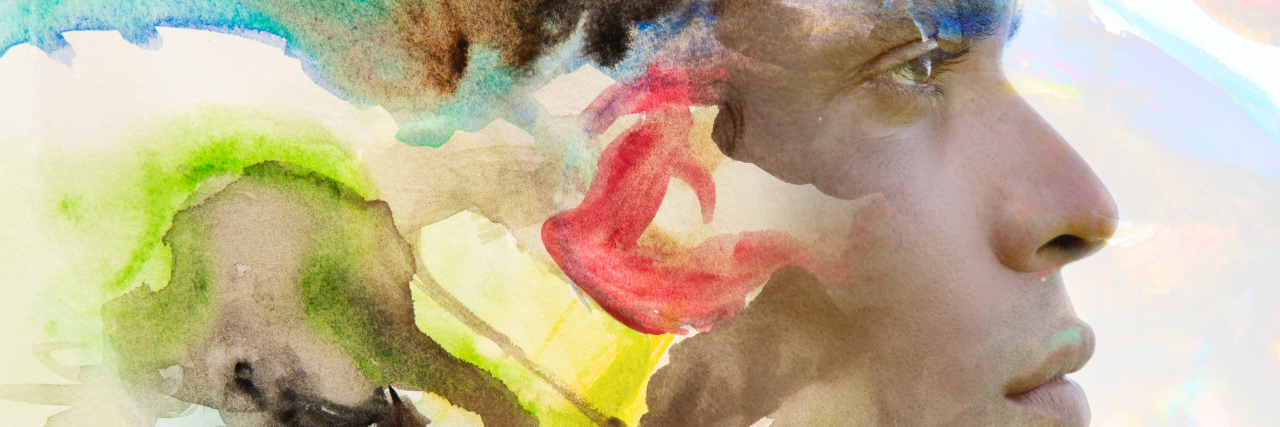It is a long story of how I got to this point in my life. Previous articles of mine have touched on the stories, but the basics: over the past week, I’ve collapsed on the sidewalk, fell in my bathroom and hit my head, been hospitalized twice at two different hospitals, underwent three brain scans, and more rounds of bloodwork and neurological tests than I could possibly count.
I went to the hospitals because I had two very scary episodes of intense neurological distress, with symptoms like double vision, slurred speech, balance issues, ringing in the ears, etc. I was discharged from the hospital a day and a half before the second episode hit, and I had to go back to the hospital. The second time, I stayed much longer, and underwent many more tests and scans than the first time. After three days in the hospital and seeing several different doctors, a group of doctors, including the attending neurologist for the hospital, came into my room, and basically said: “We don’t know what’s going on.”
I just stared blankly at him and the rest of the doctors with him, whom I learned were a team of neurologists working on my case. They said they looked over all of my bloodwork and brain scans, and there was nothing wrong. So I still just looked at the attending, and he could tell I was confused. He told me he was going to diagnose me with ataxia, which is a loss of motor coordination. My primary issue at the hospital was my inability to walk safely, so this diagnosis made sense. But what about everything else? Ataxia doesn’t explain all of it. And from what I knew of ataxias, they aren’t a disease, they are a symptom of something else. And I told him that, and he seemed put off by the fact that I knew that. I think he just expected me to take the ataxia diagnosis and move on.
But I wasn’t satisfied with that. He told me he could prescribe me medication for any dizziness, and that was pretty much it. I told him dizziness was never one of my symptoms, so what was that going to do for me? I think he just wanted to provide me something. He told me he’d have a physical therapist come and examine me before I was discharged. When I saw her, she gave me a routine exam mainly dealing with my coordination and walking. I had made some big improvements, but I still couldn’t walk on my own. She told me I’d have to leave the hospital with either a walker, two canes, or just one cane. I told her I really didn’t want the walker, and that I would prefer the canes. She said she would get me one cane for now, and if I needed two, she would get me a second.
That was a few days ago. And now, I’m here, with my new cane laying next to me. I decided to write this because it just hit me: I have a physical disability now. Whether it’s permanent or not remains to be seen, but at least for the time being, I have a very noticeable, physical disability. So, what do I do now?
I’ve always spoken passionately about mental health, mental illness, and invisible disabilities. I have no experience with physical disability; this is brand new to me. What am I supposed to do?
Well, one thing I know I’m not supposed to do is deny it or pretend it doesn’t exist. I learned that lesson with my mental illnesses. Denying reality won’t make it go away, and it certainly won’t make my cane disappear. But these past days, it’s been difficult to not want to walk around just to prove to myself that I don’t need the cane. But every time I try, I am reminded that I do need it.
I am new to having a physical disability, and to be honest, it’s a confusing and scary time. I will have to start recovering, learn how to use my cane for a short time, and hopefully find out what is causing all of this so that my doctors and I can treat that. Whether that treatment will lead to me being able to walk normally again also remains to be seen. But for right now, my cane and I are starting to build a friendship. If I’m going to be spending a lot of time with him, I might as well start to like him. I’m going to rely on him for a lot of things throughout my day, but I know he’ll always help me when he’s here. There’s a part of me that’s grateful he’s here. But there’s another part that makes me wish he didn’t need to be here.
To those of you in the visible disability community, I hope you will welcome me into your community. I don’t understand every physical disability that has ever existed, and I don’t know if I will experience this disability forever. But for the time being, I hope you will provide a home for me and my new friend.
To those of you in the invisible disability community, those of you who struggle with mental illnesses or challenges, I say the same thing: I don’t know every experience you have. I will continue to support and advocate for our community, but we can all exist together as the disability community. One is not more important than the other, even if one is more visible. We all need to stick together, because people with disabilities have a unique perspective of, and experiences with, the world. Why don’t we work together, despite our differences?
Getty image by Victor Tongdee.

